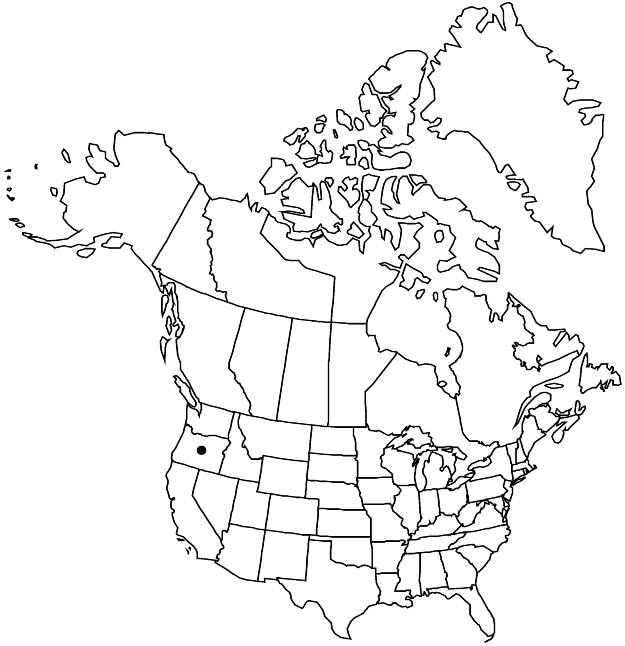Eriogonum cusickii
Contr. W. Bot. 11: 10. 1903.
Herbs, matted, usually not scapose, 0.3–1 × 0.5–3(–5) dm, glabrous, greenish. Stems spreading, with persistent leaf bases, up to 1/5 height of plant; caudex stems matted; aerial flowering stems rarely scapelike, erect, slender, solid, not fistulose, 0.2–0.9 dm, glabrous, tomentose among leaves. Leaves basal, fasciculate in terminal tufts; petiole 0.2–0.5 cm, tomentose; blade narrowly oblanceolate to spatulate, 0.5–1(–1.2) × 0.15–0.25(–0.3) cm, densely white- or grayish-tomentose on both surfaces, margins plane. Inflorescences umbellate-cymose to cymose, rarely capitate, 3–5 × 3–5 cm; branches dichotomous, glabrous, rarely absent; bracts 3, triangular, scalelike, 0.5–1 mm. Peduncles absent. Involucres 1 per node, rarely 2–5, turbinate-campanulate to campanulate, 2–3 × 2–3 mm, rigid, glabrous; teeth 6–8, erect, 0.8–1.4 mm. Flowers 2–2.5(–3) mm; perianth yellow, glabrous; tepals connate proximally, monomorphic, oblong; stamens exserted, 2–3 mm; filaments pilose proximally. Achenes light brown, 2.5–3 mm, glabrous.
Phenology: Flowering Jun–Jul.
Habitat: Sandy, volcanic flats, mixed grassland and sagebrush communities, montane conifer woodlands
Elevation: 1300-1500 m
Discussion
Of conservation concern.
Eriogonum cusickii is fairly common in scattered portions of Deschutes, Harney, Klamath, and Lake counties. It is gradually being introduced into cultivation.
Eriogonum prociduum is distinct from E. cusickii, but some populations of the latter in Lake County, Oregon, south of Christmas Valley and northwest of Wagontire, have capitate inflorescences even in fruit. These plants differ from typical E. prociduum by consistently having small, rather narrow leaf blades (3–6 × 1–4 mm) that sheath up the flowering stems.
Selected References
None.
